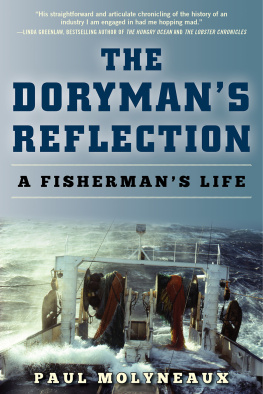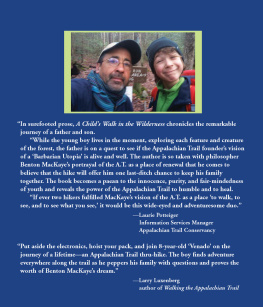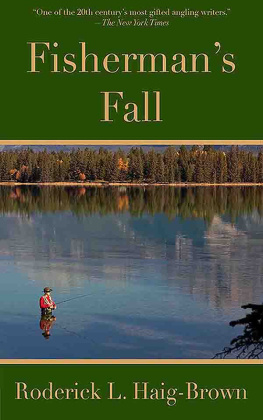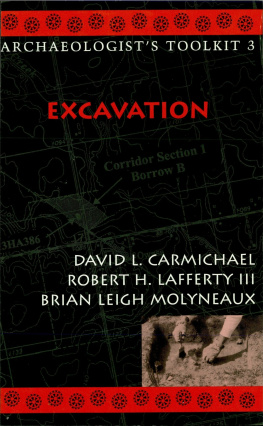Copyright 2005, 2017 by Paul Molyneaux
All rights reserved. No part of this book may be reproduced in any manner without the express written consent of the publisher, except in the case of brief excerpts in critical reviews or articles. All inquiries should be addressed to Skyhorse Publishing, 307 West 36th Street, 11th Floor, New York, NY 10018.
Seahorse Publishing books may be purchased in bulk at special discounts for sales promotion, corporate gifts, fund-raising, or educational purposes. Special editions can also be created to specifications. For details, contact the Special Sales Department, Skyhorse Publishing, 307 West 36th Street, 11th Floor, New York, NY 10018 or .
Seahorse Publishing is a registered trademark of Skyhorse Publishing, Inc., a Delaware corporation.
Visit our website at www.skyhorsepublishing.com.
10 9 8 7 6 5 4 3 2 1
Library of Congress Cataloging-in-Publication Data is available on file.
All photos used courtesy of the author unless otherwise noted.
Cover design by Tom Lau
Cover photo credit: Neal Parent
Print ISBN: 978-1-944824-22-8
Ebook ISBN: 978-1-944824-23-5
Printed in the United States of America
To Jim Molyneaux
CONTENTS
Part One
NO REFUGE

One
NO REFUGE

Y ou stand in an unfamiliar place, in motion. You see a steel door with six handles; it shifts, and you shift, leaning first one way then another. The door is not in a wall, its in a bulkhead. You dont go downstairs here; you go down below. You dont go upstairsyou go above, on deck; higher still and you are aloft in the swaying rigging. And all the time you are being lifted and dropped. You look at a man, your dorymate, and the gray line behind his head that ceaselessly rises and falls in shifting angles: the horizon. You are flexing and leaning to keep from falling down and it gets to where you stop noticing, so much so that after ten days you come ashore and you can barely stand up. You are still rising and falling, leaning and flexing, being lifted by waves that have rolled into your body, but not this far ashore. You grab for your dorymates, laughing and stumbling toward the bar.
Next thing you remember you are waking up in a motel room and half the crew is there and the captain is banging on the door. Somebody lets him in and he hands out your shares, and theyre less than you figured, and yours is half of what everybody else gets cause youre new and you only get a half share while the rest of the crew divides your other half. And they keep telling you next tripll be full share.
You think maybe you could find another boat, but before you do you are throwing the lines again, headed out for another ten days. You are on a scalloper out of Cape May, New Jersey, wondering where the glory is.
Since youre shorthanded the watches are split, which means you dont get to sleep much and you go on deck when they tell you to and stay there till youre limp, wet, and bleary eyed, then you go below into the stinking focsle, and eat a little, and sleep a couple of hours until somebody comes and wakes you and says Come on.
On deck, the dredges, fifteen-foot-wide triangles of welded steel bars, trailing long chain bags, and weighing tons, are swung out on each side of the boat. They rest heavy on the rails, each held by a single pelican hook until knocked out on the downward roll. The bell rings, you swing, and the steel pelican hook that you put on wrong whips past your face when you hit it, and your hammer goes over with the dredge.
The boat rolls on through the night under the winter stars, and people keep yelling at you and telling you what to do and how not to get hurt. They say to you repeatedly not to put your hand on the rail when the dredges are in the water, because on every roll of the sea the cables run up and down the sides of the boat like great big scissors, but you dont get it till one night you put your hand on the rail, and the tips of the fingers of your glove get clipped off.
Another night you are hauling back and the dredge comes rising from the darkness and banging alongside. You hook the tackle to it and the winch man hoists it up high over the rail. It swings in over your head, big chain bag full of tons of rocks and sea bottom dripping in the halogen glow of the deck lights, but its too rough to land it and when it swings out again the tackle parts and the whole works goes crashing into the sea. The cable screams out through the bollard behind you; you can feel it whizzing past the backs of your legs, but you are not getting hurt so you stand still, calculating the odds.
You are too small to reach the tackle when the dredge is on the rail so you climb out over the empty space to unhook it. You can hear the water a few feet beneath you, rushing past the hull, and just as you are jumping back aboard the pelican hook breaks. You push off and fall on deck as the dredge slides into the seathe suction wouldve taken you to bottom with it. They tell you that if that ever happens to hang on and theyll get you back. And you look at them and wonder.
And this is how you started fishing. But its not. You started on the bank of a Pennsylvania farm pond with your brother and grandfather. And they smiled at every gleaming fish you caught.
Two
KERRS POND

M y grandfather made me a fisherman before anything else. He held the strands of a barbed wire fence apart so my older brother Jimmy and I could get into the pasture. He passed us a bucket and our rods, and stepped over the fence after us. The rising sun burned through the morning haze, and a dozen knock-kneed Black Angus steers looked up, chewing their cuds as we walked from the roadside to the pond. We avoided looking straight at the huge cattle; it always prompted them to move toward us. Instead we looked at them sidelong, and kept an eye on the ground ahead. Cow pie, Jimmy warned, pointing at it with his rod.
Standing on the red clay bank of the pond, we watched our grandfather as he slipped the delicate line through the eye of a hook. He rolled the shank between his nicotine-stained fingers, twisting the monofilament before he tucked it back in on itself and pulled it tight. He leaned his head back as smoke drifted up into his blind eye and around the frayed bill of his cap; then he took the cigar out of his mouth, knocked the ashes off, and carefully touched its glowing end to the excess line, burning it off close to the knot.
What are you doing that for?
So the fish wont see it. Get yourself a worm there, Jackson. He called us that sometimes and it made us laugh.
He tied on Jimmys hook while I pawed around in a Styrofoam cup full of shredded newspaper and worms. Theyre not in here.
Keep lookingtheyre in there.
Jimmy reached for the cup, but I turned away. I got it, I said, and he let me go.
The worms had twined themselves into a squirming ball in the bottom. I pinched off the tough end of one, the head, and held it as it struggled between my fingers. Here. I handed Jimmy the cup and he took the other piece.
Go ahead and put them on your hooks, our grandfather told us.
I watched Jimmy slip the open, bleeding end of his worm over the point and around the shank of his hook, and I did the same, pulling my worm around the steel hook like a sock until the brown segmented head just hid the barb. The half worm dangled from the end of my rod, and writhed above the calm water of the pond.













